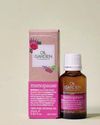
Want to lose weight? Join the mob. According to a Roy Morgan survey, 72 per cent of Australian women and 58 per cent of men wanted to lose weight in 2014. In the ABS’ Australian Health Survey 2012 (the latest date for which such data is available), more than 2.3 million Australians aged above 15 years reported being on a weight loss diet. Yet, despite the thousands of books, websites, products, diets and businesses dedicated to the cause, our collective girth as a nation continues to climb. A whopping 67 per cent (12.5 million of us) were overweight or obese, according to the 2017–18 National Health Survey. In the 1980s that figure was around 10 per cent. What’s the go?
While we tend to view our weight issues as a sign of personal failure, the real culprit is a complex combination of factors inherent in the modern world. This includes our busy yet sedentary lifestyles, social factors and the omnipresence of refined food. Rather than blaming and shaming ourselves, the answer lies in understanding the forces we’re battling and implementing habits that support a healthier weight. With obesity a glaring global health issue impacting all ages, science is increasingly being harnessed in the fight.
Why and how we should size ourselves
While we need to love ourselves in all our shapes and sizes, too much body fat is linked to numerous health issues — from a greater risk of arthritis and diabetes to certain cancers and a lowered life expectancy.
Under the World Health Organization’s definition, you’re considered overweight if you have a BMI (a measure of your weight in kilograms divided by the square of your height in metres) of 25 or more; and obese if it reaches 30. However, not everyone with a high BMI is necessarily unhealthy, including those who exercise and eat well or hold a lot of muscle mass.
Esta historia es de la edición Issue 183 de WellBeing.
Comience su prueba gratuita de Magzter GOLD de 7 días para acceder a miles de historias premium seleccionadas y a más de 9,000 revistas y periódicos.
Ya eres suscriptor ? Conectar
Esta historia es de la edición Issue 183 de WellBeing.
Comience su prueba gratuita de Magzter GOLD de 7 días para acceder a miles de historias premium seleccionadas y a más de 9,000 revistas y periódicos.
Ya eres suscriptor? Conectar

YOGA FOR IMPERFECTION
Life is messy and we all make mistakes, but by embracing imperfection, we can begin to accept all parts of ourselves.

Creating the foundations of ritualist self-care
As a busy mum of a three-year-old and expecting another baby, finding time for self-care often feels like a luxury.

Are you doom spending?
If \"doom spending\" has become your go-to for coping with stress, you could be making withdrawals from not just your bank account, but your health too.

THE POWER OF music
Most of us enjoy music. But science shows music is central to being human and its effect on us is far more astonishing and impactful than we realise. Music is fundamental to life.

SYNTHETIC FOODS
Synthetic, or genetically modified, fake meats and the like attempt to mimic real meat in both looks, taste and texture. But how much do we really know about the production process and how do they affect the environment and our bodies?

Embracing the power of nature
Menopause is more than just a biological change, it represents a significant life stage that can present numerous challenges - from hot flushes and mood swings to fatigue and sleepless nights.

Jan Fran
From a young age, Jan Fran's deep curiosity and keen interest in social issues sparked her journey into the world of journalism. As an accomplished journalist, media commentator and broadcaster, Fran's passion for storytelling has always been driven by a desire to explore, question and shed light on the world around her.

Helping teen girls thrive
Statistics reveal that many more teen girls are struggling with mental health issues. What's going on with them? More importantly, what can we do to help them flourish?

Your ageing eyes
Your eyes work hard for you every waking minute. It is no surprise that how your eyes age will be determined by how you protect them. Eating the right foods can go along way towards ensuring that your eyes stay healthy for a lifetime.

The bottom line
During the Couid pandemic, we were shocked to see people fighting in supermarkets over toilet paper and to see empty shelves that had once held roll after roll. The reasons behind the run for toilet paper during this time reflect the unique place that it holds in our psyche and are deeply rooted in our history.